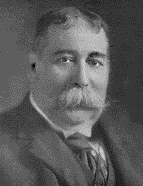

The path taken by the historian-diplomat to characterise the Brazilian nation expressed—in addition to Portuguese historiographical models—those of Brazilian historiography. When he approached the subject of nationality, he was permeable to the diffusion of theories present in the historiography of the late 19th and early 20th centuries, which led him to define the nation by making references to determining elements. His contact with Social Darwinism and Spencer's evolutionism provided him with key elements for the evolutionary conception of the peoples subjugated by the European colonisers. His reading was anchored in the idea of civilisation understood as the construction and apprehension of certain paradigmatic values and behaviours that resulted from the presence of reason in history. The prototype of the most advanced stage of civilisation would be the Western European peoples, those ones who embarked on the colonial expansion of the 15th and 16th centuries and maintained, in the 19th, a submission of peoples attached to empires.
For this reason, his recreation of national history was based on the assumption of a superiority of the European coloniser, who had been entrusted with the historical task of bringing the Enlightenment of European civilisation to peoples that were considered backward on the evolutionary scale. This mission would be accomplished through two main agents: the State and the Church. In Hegel, Oliveira Lima sought grounds to point to the state as the key to reconciling the universal and the particular: an ethical-civilising institution capable of promoting the overcoming of brute existence.
The ethical-political foundation was especially relevant in 19th-century liberal thought and presides over its historical narrative. Colonisation was understood as a civilising task, highly qualified in the sense of promoting a "disenchantment" of America. Backing the imperialist worldview, the author justified the colonial enterprise as an action to rescue less evolved peoples from backwardness and barbarism. He developed an evolutionary and progressive reading of history, with justifications based on science, religion and morality, which would justify the distinction between superior and inferior peoples, and clearly opposing economic interventionism, regulations and monopolies that hindered colonial trade and prevented the free play of market forces manipulated by the European powers. In this interpretation, the presence of the State constitutes the greatest evidence of civilisation, as it signifies the distinctive trait of a superior people, an exclusionary frontier between the European and the Indian in a state of barbarism, dispersion, disorder, absence of authority, and paganism, reminding the colonisers of their own past. The state presents itself as a shaping and tutelary force for the nation, a rationalising element in the historical process by giving it an identity. However, although he acknowledged the merits of the Portuguese colonial enterprise in rescuing the land of savages that was Brazil, he did not spare the Portuguese from a harsh judgement by accusing them of the commercial incapacity pointed out by Oliveira Martins, a result of actions contrary to their own interests in the colonial enterprise. Behind this reflection we can locate an attempt to explain Portugal's situation in the concert of European nations at the time of the production of his works, understood as one of inferiority in relation to The Netherlands and England. Therefore, there is definitely an Aryanising bias in his work on Pernambuco around the discussion of the viability of Dutch colonisation in that Brazilian state. The author emphasised the racial differences between the "Portuguese type"—with which the Flemish would already be familiar because of the immigration of Iberian Jews—and who "had littered the streets of Amsterdam with swarthy people with a perfectly southern complexion". The proof of Flemish superiority over the Iberians would be their military victories in the 17th century, fuelled by a mercantile spirit that was more powerful than that of the Portuguese—because it was more evolved.
This work is financed by national funds through FCT - Foundation for Science and Technology, I.P, in the scope of the projects UIDB/04311/2020 and UIDP/04311/2020.
